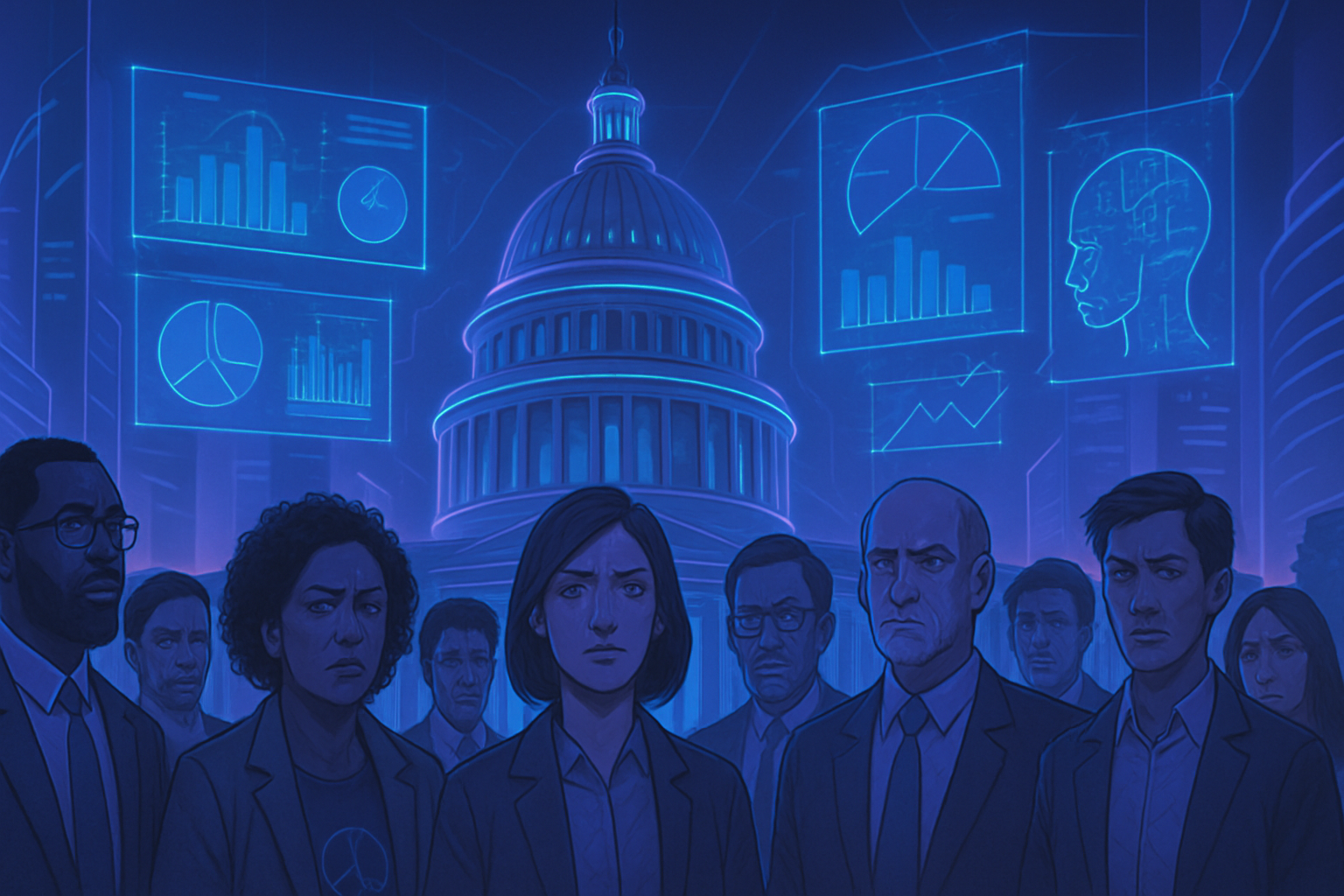Influential voices are rising to sound the alarm about AI and the legislation proposed by Donald Trump. The “great and beautiful law” could legitimize unprecedented abuses. This controversial text, currently under debate in Congress, includes a provision that would prohibit states from regulating artificial intelligence for a decade. This inaction regarding regulation endangers privacy, civil rights, and accountability. Prestigious groups and civil rights organizations are expressing their concerns about the dangers that automated decision-making systems could pose. The consequences of this legislation could be catastrophic for American citizens.
Growing Concerns About AI in the ‘Great and Beautiful Law’
A coalition of 141 organizations is raising major concerns about the proposal contained in the “Great and Beautiful Law” led by President Donald Trump. This group, composed of unions, advocacy associations, and academic institutions, has sent a letter to Congress to alert about the potential consequences of the absence of AI regulation.
Worrisome Moratorium on AI Regulation
The incriminated proposal prohibits states from regulating artificial intelligence for a period of ten years. This measure, inserted by Republicans into a national bill touching on various areas, is attracting strong opposition. Opponents believe it could lead to unprecedented AI abuses and compromise fundamental civil rights.
Consequences for Civil Rights and Privacy
The organizations signing the letter denounce that this lack of regulation threatens to annihilate protections concerning civil rights and privacy, notably regarding children. They argue that essential measures of transparency and fraud prevention found in consumer-oriented chatbots could be systematically canceled.
The letter emphasizes that AI abuses can violate civil rights, individual freedoms, and even jeopardize national security. The consequences could range from unjust decisions about rents to serious violations of civil rights.
Risks Associated with Lack of Accountability
Without state regulation, AI companies would be free from any legal liability. The signatories of the letter assert that even algorithmic decisions that create foreseeable harm would not be subject to an accountability framework, thus reducing potential remedies for victims of abuse.
This situation raises fears of serious ethical breaches. Companies could design harmful algorithms without fear of being held accountable.
Furthermore, the negative effects of AI include concrete cases of algorithmic discrimination affecting sectors such as housing or healthcare.
Security Violations and Protection of Minorities
The organizations highlight documented abuses of AI, such as sexualized conversations between AI programs and minors, sometimes encouraging them towards self-destructive acts. Decisions surrounding medical assistance, influenced by biased AIs, also present major concerns. Finally, AI applications could facilitate the creation of content for non-consensual purposes, such as deepfakes.
The letter, addressed to Republican and Democratic leaders, underscores that existing laws in states like New Jersey and Colorado are vital to protecting citizens against such abuses. These established laws specifically aim to prevent insidious discrimination generated by AI technologies.
Next Steps for the ‘Great and Beautiful Law’
Trump’s bill, having been advanced by the House Budget Committee, still has to pass several stages before a final vote in the Senate. The inclusion of the AI provision in the final text remains uncertain. Discussions continue on the impact this law could have on the development and use of AI technologies.
The concerns raised by this group of organizations highlight a broader debate regarding the ethical and regulatory challenges posed by AI in modern society. The tension between technological innovation and the protection of individual rights will be crucial to monitor in the coming months.
For a deeper analysis on the implications of AI in various spheres, feel free to consult resources like this article or this one.
Frequently Asked Questions
What are the main concerns regarding the AI provision in Trump’s “great and beautiful law”?
Major concerns include the risk of uncontrolled AI abuses, the threat to civil rights, the protection of privacy, as well as the lack of corporate accountability that could allow harmful algorithms to be designed.
How does the provision affect AI regulation at the state level?
This provision would prevent states from regulating AI for ten years, which could result in a lack of protections against harmful technologies, especially related to algorithmic discrimination.
What examples of AI abuses could occur if this law is passed?
Examples include biased decisions regarding rents, violations of civil rights, biased medical decisions, as well as the facilitation of cyberattacks or the creation of bioweapons.
Who signed the letter addressed to Congress against this measure?
The letter was signed by 141 organizations, including unions, advocacy groups, NGOs, and academic institutions, warning against the negative consequences of this provision.
What impact could this law have on children’s safety?
Organizations fear that the lack of regulation could allow AI systems to provoking harmful interactions with minors, including sexualized conversations or encouragements towards self-harm.
How could companies escape liability due to this law?
The law would prevent states from imposing regulations, leading to a lack of accountability for companies that could create technologies causing foreseeable harm without legal consequences.
What existing state laws are at risk of being invalidated by Trump’s “great and beautiful law”?
Existing laws, such as those in New Jersey and Colorado, which protect against algorithmic discrimination and ensure safeguards for consumers, could be invalidated.






